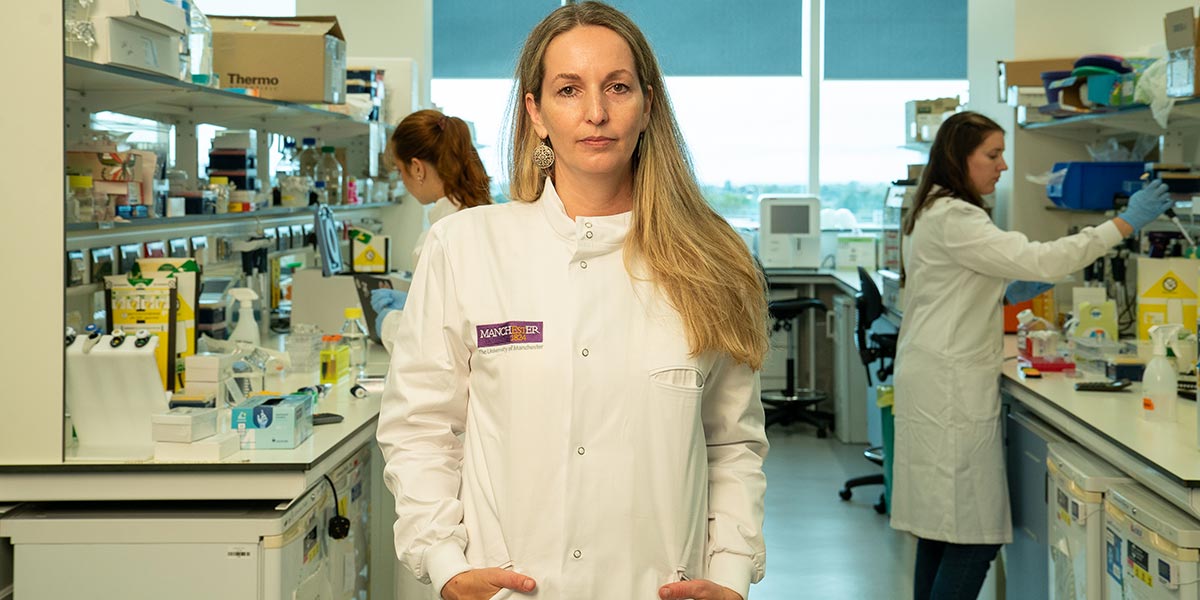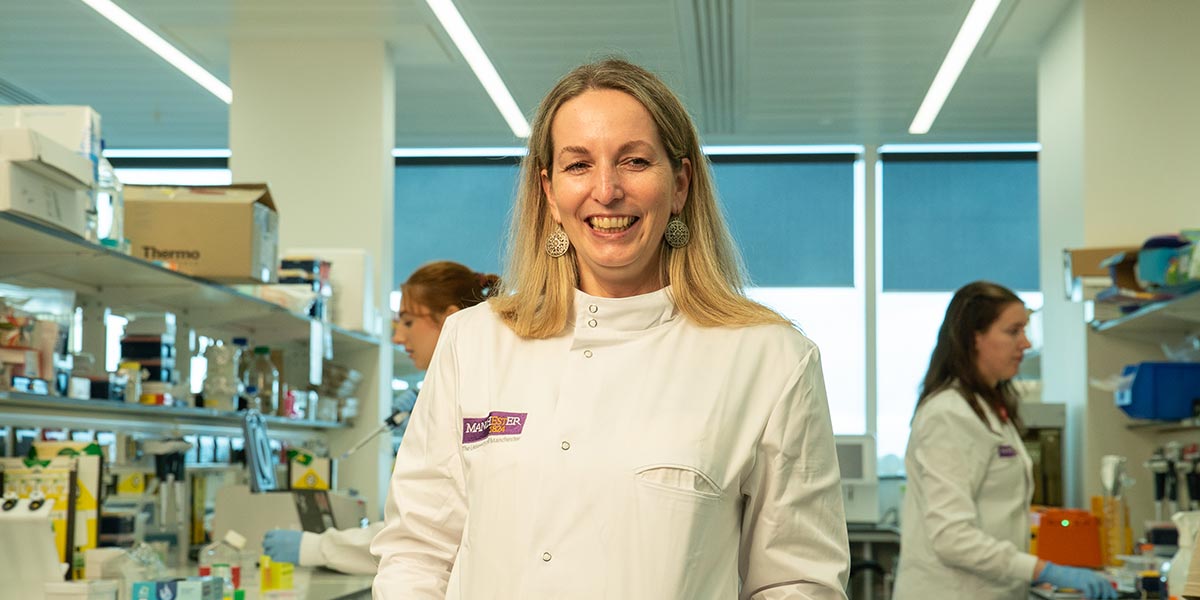Improving outcomes for people with brain tumours. Challenge accepted.
Every year, brain tumours claim more lives than any other form of cancer in children and young adults. At The University of Manchester, Professor Petra Hamerlik is leading pioneering research to change that.
As Chair of Translational Neuro-Oncology and Head of the Paterson Research Lab, she and her team are building new ways to detect brain tumours earlier and develop therapies that could give patients more time and a better quality of life. Challenge accepted.

At the Paterson Research Lab, Professor Petra Hamerlik leads a team driven by a single purpose: to understand brain tumours better and find new ways to beat them. Her lab focuses on early detection and therapeutic innovation that could transform outcomes for patients worldwide.
For Petra, this work is deeply personal. Having lost her father to a brain tumour at a young age, she saw first-hand how little could be done for patients with aggressive forms of the disease.
She grew up in a small university town in Slovakia and decided early on to dedicate her life to cancer research. After completing her PhD in the Czech Republic, she moved to Copenhagen, Denmark, where she spent 17 years studying and modelling brain tumours and ultimately building her own laboratory.
That work led to a role at AstraZeneca in the UK – and eventually to Manchester, where she saw an opportunity to bring science, medicine and compassion together.
“The University of Manchester is unique in that it covers quite a big population. It has the amazing opportunity of having the clinical, pre-clinical and translational sciences in one place. We have surgeries happening in Salford, The Christie does the therapy, and we do the research, so we're kind of in between all of it.”
When Petra joined Manchester in 2022, her goal was to create a platform that would allow scientists to study brain tumours more effectively and develop new diagnostic tools. Her team, made up of researchers from diverse backgrounds, collaborates across disciplines to accelerate progress.
Brain tumours are rare – the most common, glioblastoma, affects only two people in every 100,000. That rarity makes diagnosis challenging, as symptoms can be subtle or absent.

“The time of intervention is directly linked to prognosis and survival of the patients. If a tumour is small, the surgeon can remove it fairly safely with good margins; if the tumour grows fast and spreads throughout the brain, surgery can do only so much. Through our work, clinicians will be able to see if there’s a really high chance you have a brain tumour, need a scan, or should be monitored in an active surveillance manner.”
To address this, Petra’s lab is pioneering liquid biopsy techniques that can identify tumours through blood or tear samples, supported by AI-driven biomarker analysis and new tools to help GPs detect warning signs sooner.
They’re also breaking new ground in drug discovery, using donated tissue to grow miniature tumours known as organoids – models that allow scientists to test how different drugs interact with cancer cells before entering clinical trials.
Their partnership with St Mary’s Hospital focuses on one of the most urgent challenges: paediatric brain tumours, a leading cause of childhood cancer deaths. Together, they’re creating new diagnostic tools and therapeutic pathways that could save young lives.
Like many scientists, Petra recognises that sustainable funding is the key to continuity and that philanthropy makes her work possible; ensuring long-term stability, supporting new researchers, and giving promising ideas time to evolve.
“Philanthropy is essential for the existence of scientists in academia. A lot of things we do will have an impact in ten, 15 years from now, but if you invest into the stepping stone to something bigger, you can make a real difference.”
Looking ahead, Petra dreams of building a centre for early detection and patient-centred research, training future scientists and creating pathways from discovery to clinical trials to long-term care.
Your support helps scientists like Petra turn research into results - transforming diagnosis, treatment and survival for people affected by brain tumours.
